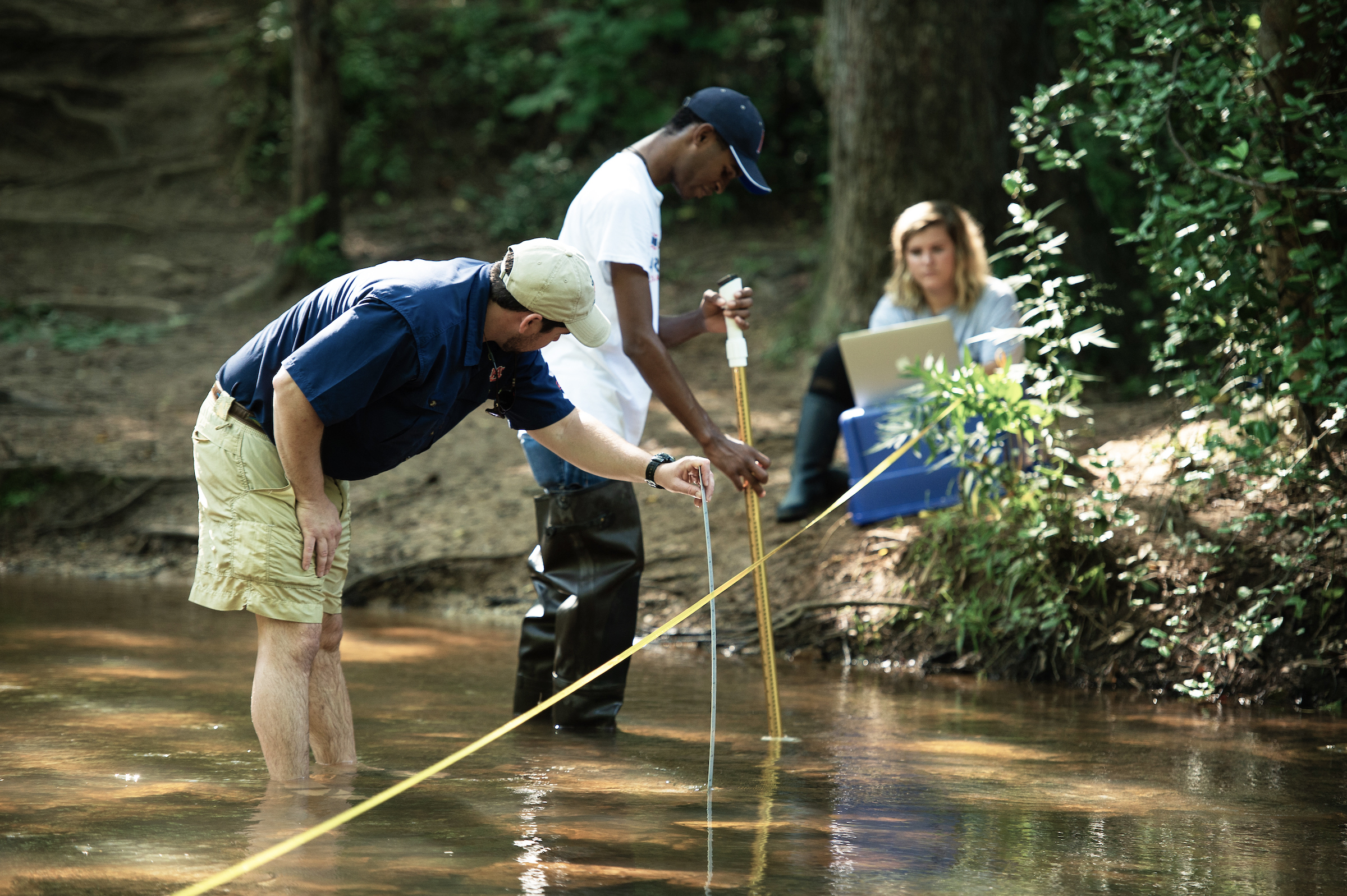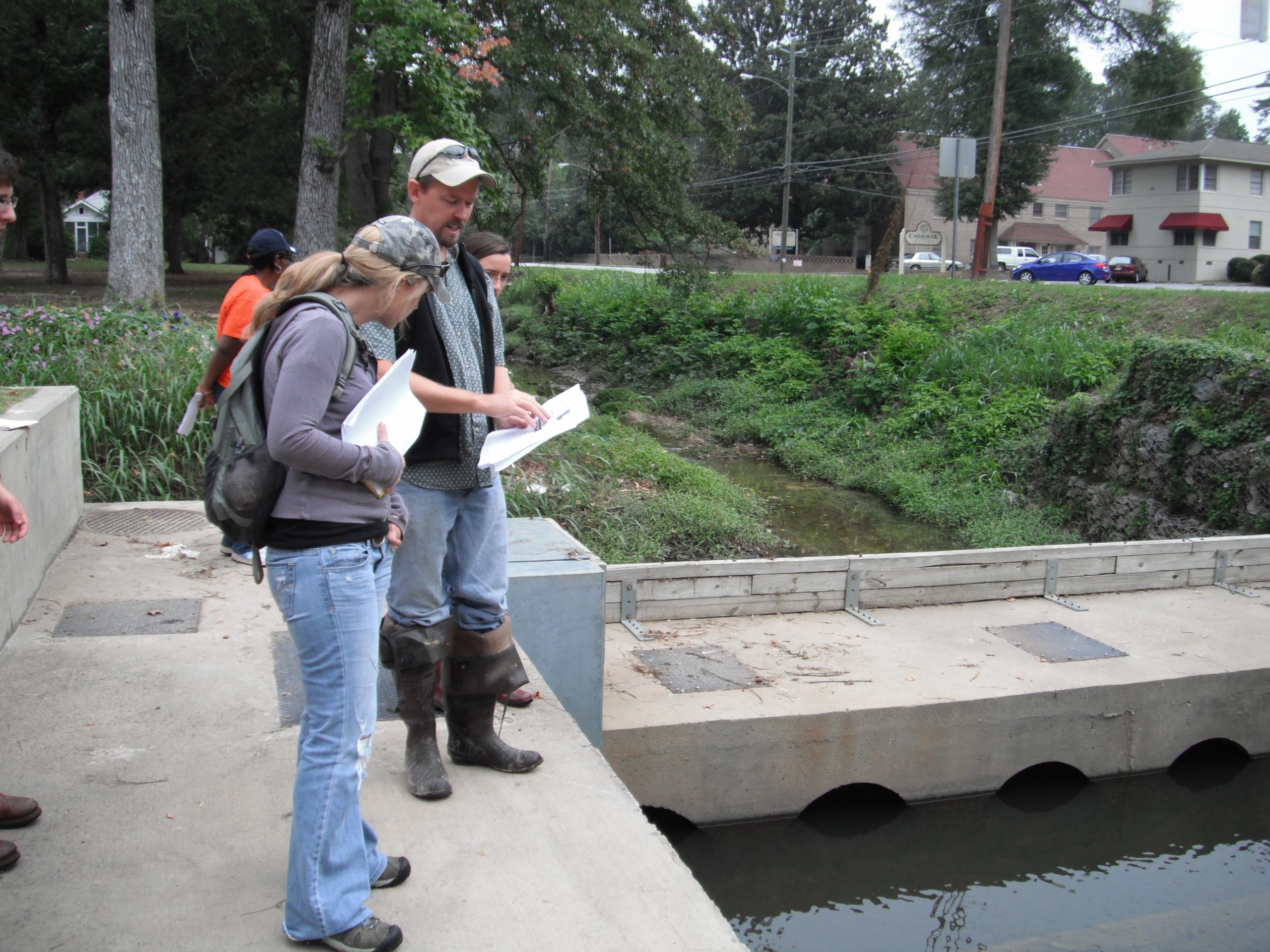Natural Resources Management
Throughout the world, the quality of life of individuals and communities is directly associated with the use and management of land, water, soil, plants, and wildlife. Natural resource and environmental managers seek to balance the diverse and interconnected needs of society with the sustainable use of natural resources to guide the ways in which humans interact with their surrounding environments.

Located in the East Central region of Alabama, the Auburn University College of Forestry, Wildlife and Environment, or CFWE, offers easy access to the abundant forests, rivers and streams, and waterways that make this state one of the most biologically diverse in the nation. These diverse natural habitats, which span from the Gulf of Mexico to the Tennessee Valley, make Alabama an ideal place for education and careers in natural resources. Established in 1856 as a land-grant institution, Auburn University offers an excellent value and quality of life for its students. Auburn University, which is situated within the idyllic community of Auburn, consistently ranks as a “Top 50 Public Universities” in the country by U.S. News and World Report and has been voted the “Best College in the State” by Forbes Magazine. Boasting annual enrollment at nearly 30,000, Auburn has also been voted one of the “Best Values in Public Colleges” by Kiplinger with 98% of Auburn alumni polled highly rating their decision to attend Auburn.

Depending on a student’s career goals, the degree can be paired with one of many exciting minors to create a customized program to suit their interests, including Coastal Management, Environmental Law, Forest Health, Forest Seedling Nursery Management, Nature-based Recreation, Natural Resources Ecology, Urban Forestry, and Watershed Sciences. This major can also be paired with others at Auburn, such as Geosciences, Fisheries, Sustainability or Business. Small class sizes and close contact with world-class faculty provide for a challenging and high-quality academic experience. Beyond the classroom, our students have ample opportunities for hands-on learning through study abroad, undergraduate research, internships, and other real-world experiences that prepare them for exciting and rewarding careers.

The College of Forestry, Wildlife and Environment welcomes transfer students who wish to apply up to 60 semester hours of credit toward their degree program at Auburn University. The school has also forged cooperative transfer programs for students who are earning credit toward their degrees at University of West Alabama, and others. A partnership with Southern Union State Community College also offers a Path to the Plains where students may take classes simultaneously at both institutions until their junior year, where they will fully enroll at Auburn.
If you have any questions about Auburn’s grade point requirements for transfer students, transferring or would like an academic advisor to evaluate your transcripts, please call our Student Services office at 334-844-1001 or e-mail workingwithnature@auburn.edu. Learn more about Auburn’s cooperative transfer programs.

The Natural Resources Management (NRM) major prepares the next generation of leaders with the knowledge, ability, and excellence to conserve and manage our natural systems for a sustainable future. The degree is an innovative interdisciplinary combination of social and ecosystem sciences, structured to generate critical thinking and problem solving skills necessary to address the many diverse challenges of complex natural resource and environmental issues. Paired with a minor, students can tailor their academic experience so that they may discover and pursue their career interests while acquiring a diverse skill set expected of today’s natural resource professionals.

Natural resources management offers a wide variety of career options and solid earning potential in both public and private sectors, including positions within federal, state and municipal governments as well as nonprofit agencies such as land trusts, conservancies, and other environmental organizations. Depending on an individual’s specialization with a minor, experience, and skill level, graduates may qualify for occupations such as:
- Land and resources manager or planner
- Environmental consultant
- Environmental or conservation scientist
- Urban planner
- Forest health specialist
- Environmental educator
- Urban forester
- City arborist
- Ecotourism operator
- Forest seedling nursery manager
Explore this career guide toolkit to learn more about outdoor recreation and conservation careers.









